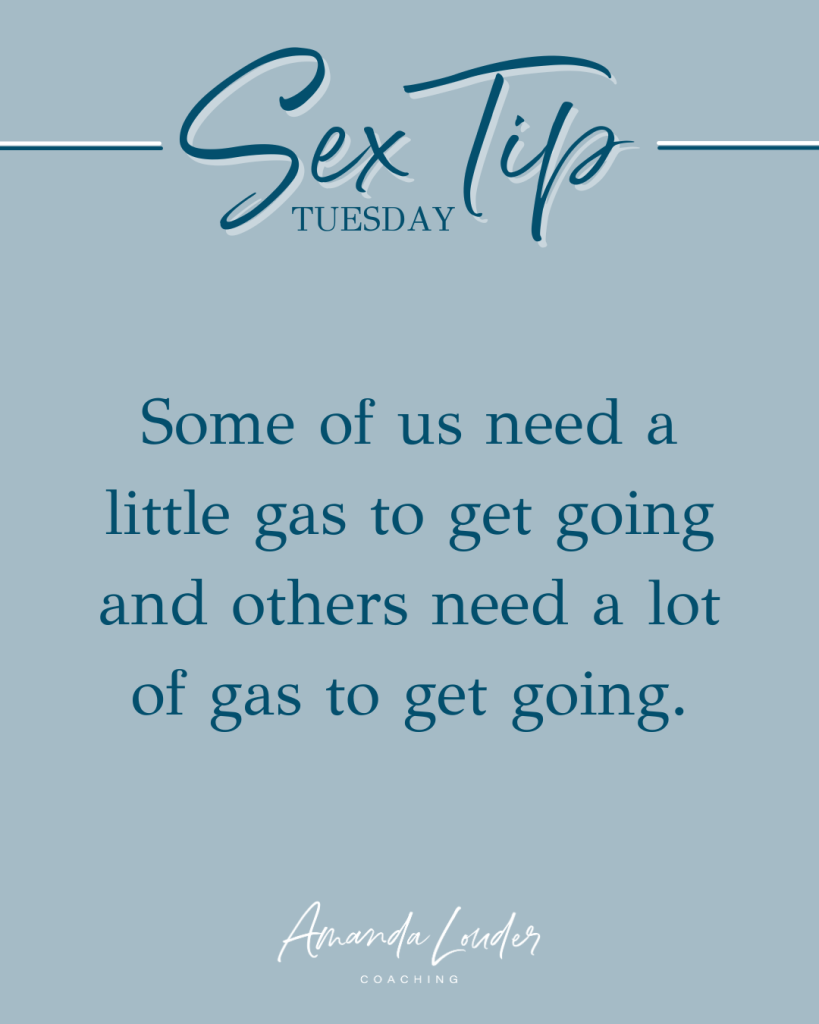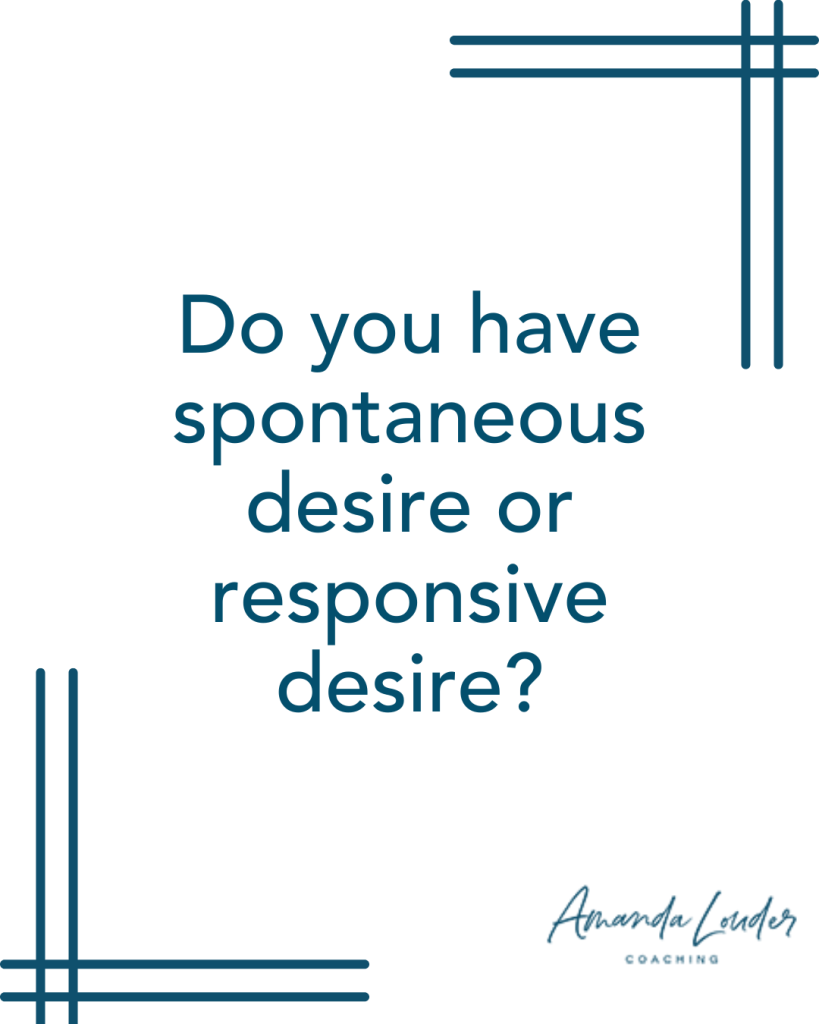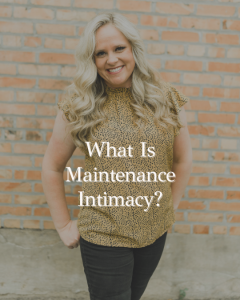
We have often talked about spontaneous desire vs responsive desire on my podcast. But today, I want to go a little deeper into the responsibility you have if you happen to have responsive desire. Often women, and some men, have responsive desire, but that doesn’t mean that their partner is always in charge of initiating. You can have a high sex drive and even be the higher desire partner with responsive desire. Let me show you how!
Show Notes:
Follow Amanda on Facebook and Instagram.
Join Amanda’s Private Facebook Group.
References for this episode:
Come, As You Are by Emily Nagaski
Show Summary:
Here on the podcast we have talked many times about spontaneous desire versus responsive desire. On today’s episode, I want to take this discussion a step further and talk about the responsibilities of the person with responsive desire and what that might look like.
If you are new to the podcast and my work, let me quickly give you an explanation of what these two different types of desire are and how they work. This comes from the work of Emily Nagasaki and her book Come, As You Are. Spontaneous desire is often what we think of when it comes to desire. That it’s just there. It often appears seemingly from nowhere. It’s spontaneous. This type of desire is often seen as the right kind of desire and what we should all be experiencing. But that just isn’t true. I would say the majority of men and some women experience a more spontaneous desire. Responsive desire is what the majority of women and some men experience. This kind of desire is a desire that is born out of creating the right kind of sexual context. This type of desire responds to sexual stimuli. What you see, smell, taste, touch, hear, and even what you imagine. This type of desire is often seen as a “lesser” form of desire, which it is not. It’s just different but equally valid.
I actually like to think about desire along these lines but maybe not quite so rigidly. In the book Come, As You Are, Dr. Nagoski also talks about sexual accelerators and brakes. The things that turn us on and the things that turn us off. Some people have more sensitive accelerators and some people have more sensitive brakes. Again, not right or wrong, just different. Those who are seen as having a more spontaneous desire tend to have more sensitive accelerators and those who have a more responsive desire tend to have more sensitive brakes. I like to think of it as more reactive desire and less reactive desire. Some of us need a little gas to get us going and others of us need a lot of gas to get us going.
Something that I see a lot with my clients and other women that I interact with is that they think that because they are responsive desire that it’s their husband’s responsibility (as the one with spontaneous or more reactive desire) to provide the sexual context and doing all of the initiating, so that they have something to respond to. I think this is a false idea and is also highly unfair and problematic in the sexual relationship.
Many women are using their responsive desire as a way to not take any responsibility in the sexual relationship. To not take ownership over her own sexuality and become an equal partner in the sexual relationship. And this, in my opinion, is wrong.
I think it is important that BOTH partners take responsibility for their own sexuality and desires. It’s their job to cultivate their desires and express those in a way that benefits the marriage. It’s important that both partners work to initiate and express want and desire for their spouse. Everyone wants to be wanted and desired, it’s not just the man’s job to desire and the woman’s job to be desired.
I also understand it can feel very vulnerable to be the initiator. To put yourself out there. And depending on your brakes, working on creating that context for yourself can seem really hard. Many women I work with (and talk to) know that they are responsive desire and just don’t want to put in the work because it’s “work.” And it is. But I feel like it’s work worth doing.
One of the things that helps the work not seem so daunting is by keeping the pilot light lit. Let’s say your sexuality can fluctuate on a scale of 0-100. 0 being no desire at all and 100 being ready to go at a moment’s notice. Often women will work themselves up to the 100, go through the sexual experience, even have an amazing time and truly love it, and then go back down to 0 again. Where they don’t think about it at all for days because they feel like they don’t need to since they just did it and now they get a break. The smarter thing to do is to never let it drop down to 0. To keep that pilot light lit, or keep themselves around the level 60 mark all the time.
I mentioned this to someone recently and she said “but I don’t want to be aroused all the time. That just seems like it would be frustrating to be aroused and he’s not there to satisfy it because he’s at work or something.” But I don’t see it as being aroused all the time. It’s not so much a physical state of being but more of a mental state of being. It’s more about cultivating eros energy.
Esther Perel talks about cultivating erotic vitality. She says “eroticism is not sex per se, but the qualities of vitality, curiosity, and spontaneity that make us feel alive. Eroticism is cultivating pleasure for its own sake. It’s about bringing adventure back into play and creativity into our lives.”
Often what keeps us from cultivating this desire and it seeming like it’s so much work is the conditioning we have and the cultural messages that we have around sex and desire. This is why it’s vital to understand our conditioning, the belief systems and thought patterns we have, and work to change them. We have to grow in our ability to cultivate that desire within.
Here’s an example that I think a lot of women can relate to. You read a book or watch a movie that has more sexual undertones, connotation, or even outright sex scenes. You notice you have more desire, you might even initiate or just give your spouse cues that you’re in the mood. But then you start to feel guilty that reading or watching something like isn’t ok, good women shouldn’t do that, it’s not ok or you don’t want to feel those types of feelings from reading or watching something, so you don’t do it again. This is something I hear from women all the time.
When I coach women who say they are experiencing guilt about something, that’s valid. But we have to look at why. Why are they experiencing guilt? Is it something that is actually out of their value system? Or is it because they think they shouldn’t be doing something, even if it felt good and it created good results in their marriage? Are they taking on the guilt they think they should be feeling or is it actual guilt?
I think intention matters. And when you are doing things that create more desire in you and then you can direct that sexual energy towards creating a better relationship with your spouse, I think that’s a good thing, usually. So consider pursuing things that your desire can respond to in order to cultivate that in yourself to share with your spouse.
One last comment as we wrap up here. Often we think that the higher desire partner is spontaneous and the lower desire partner is responsive. And for many, that is the case. But it does not have to be.
I am responsive desire, but I am the higher desire partner in my marriage. I just work very hard to cultivate that desire all the time. I keep my pilot light lit. I probably wouldn’t be higher desire if I didn’t put in the work. And I don’t see that work as a bad thing. It blesses my life even if we don’t have sex that night. I can keep it going for days and it just builds and builds. And it’s not just about the “sex” for me. It’s about HIM. About wanting and desiring him. Having that connection and intimacy with him outside and inside the bedroom. It’s the flirting, the touching, the making eye contact. It makes me feel so alive all the time. And that erotic energy (Eros) comes out in all aspects of my life, not just sex.
Alright my friends, thanks so much for joining me today. Remember, love is a journey, not a destination. Stay committed, stay passionate, and stay connected. I hope you all have a very Merry Christmas.





